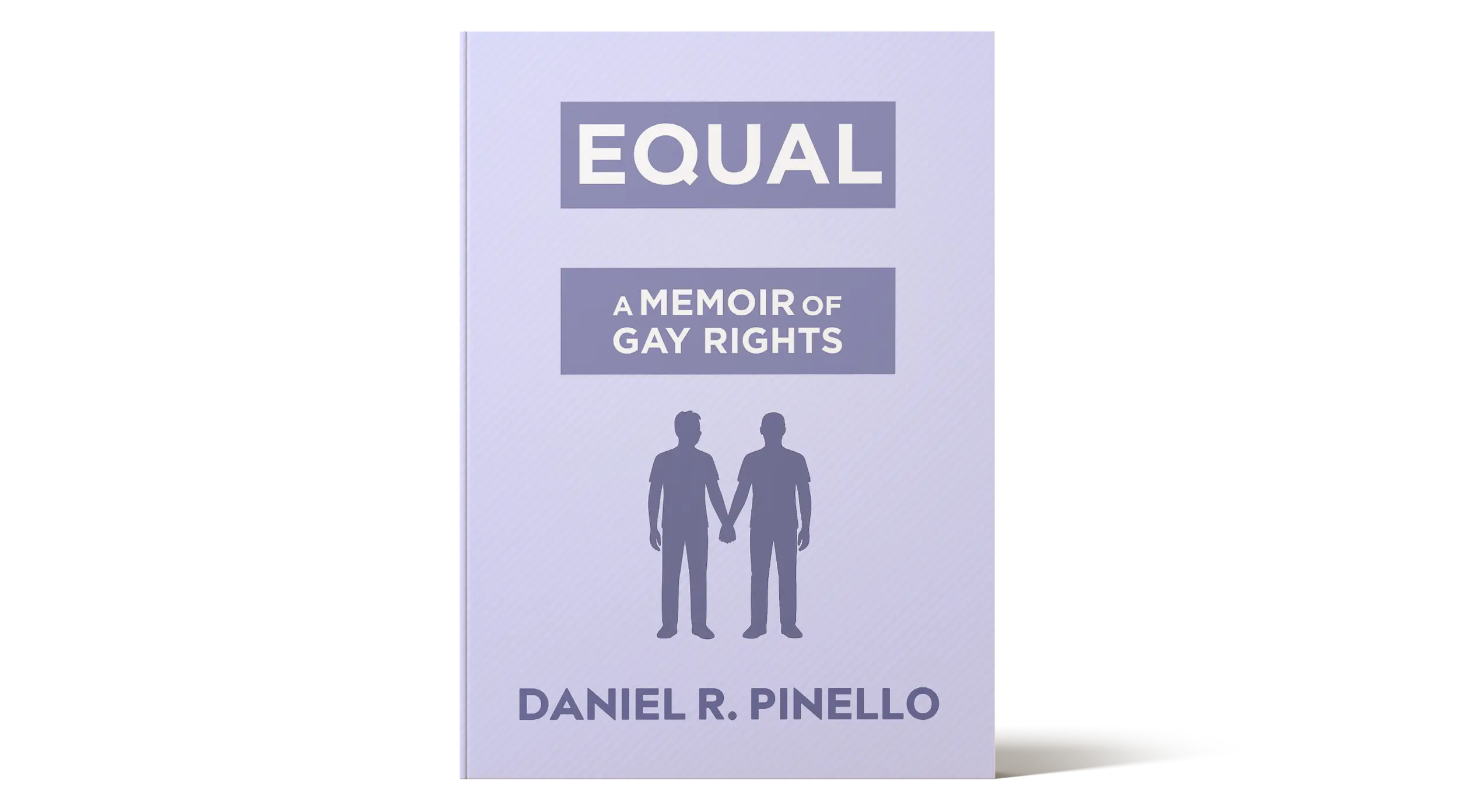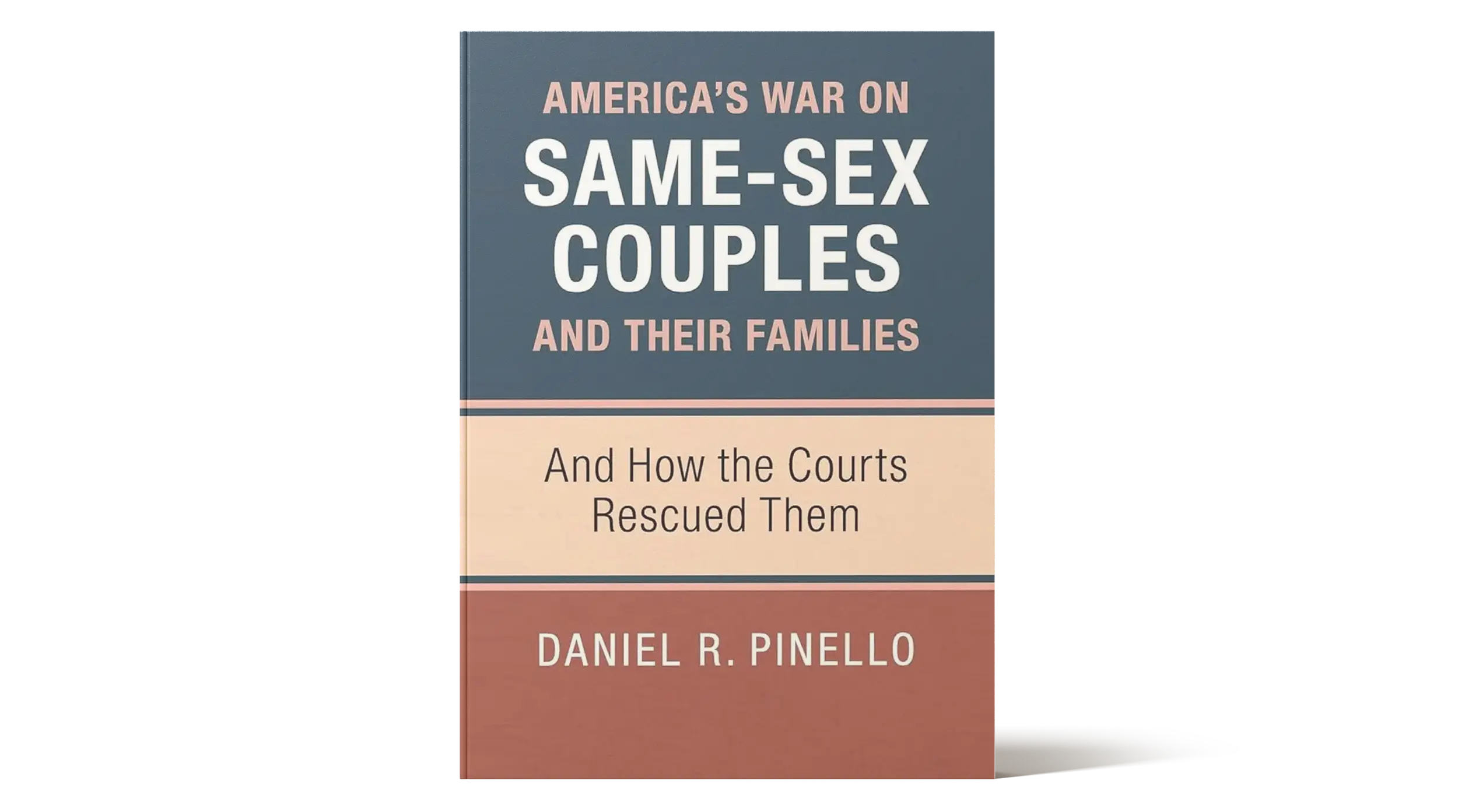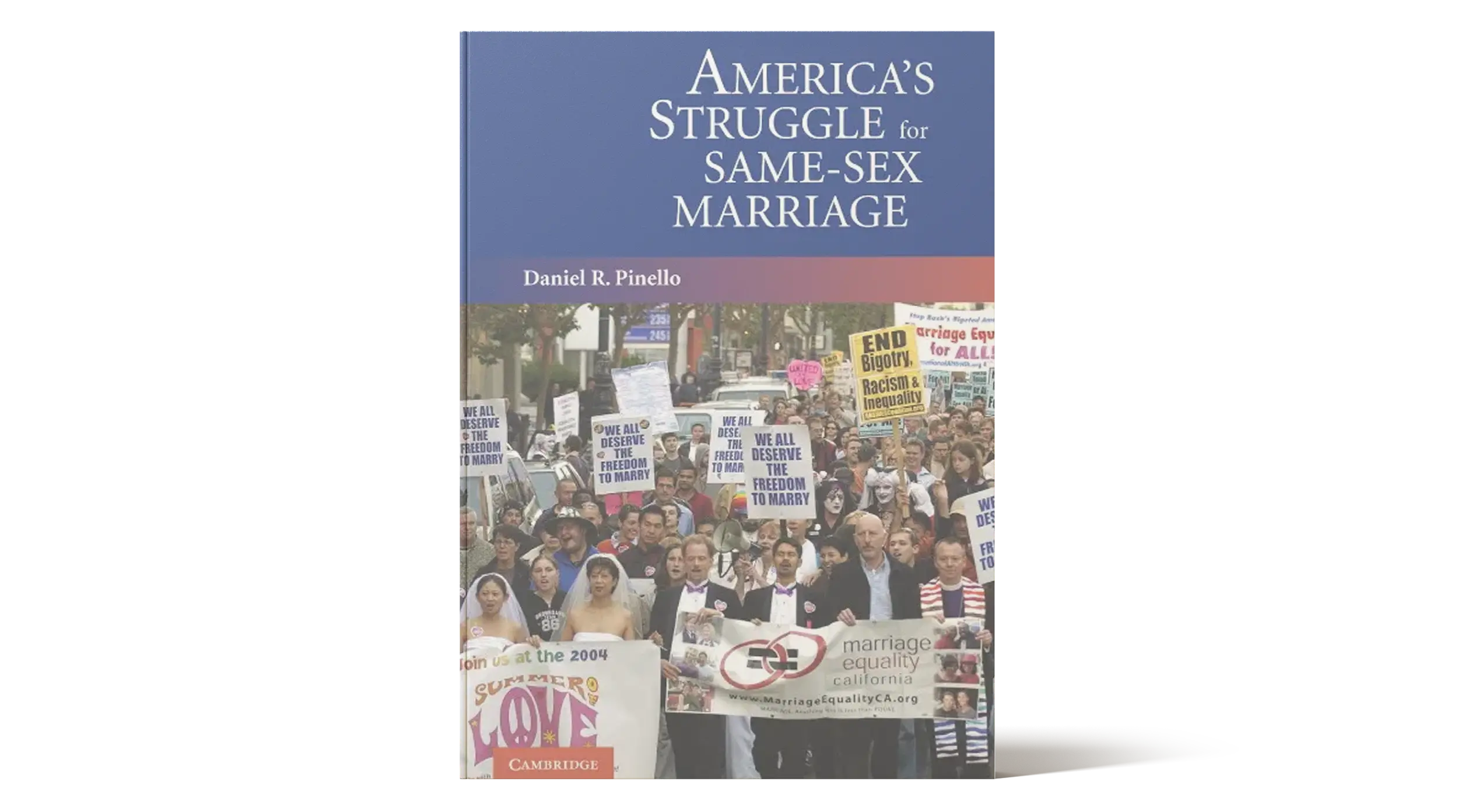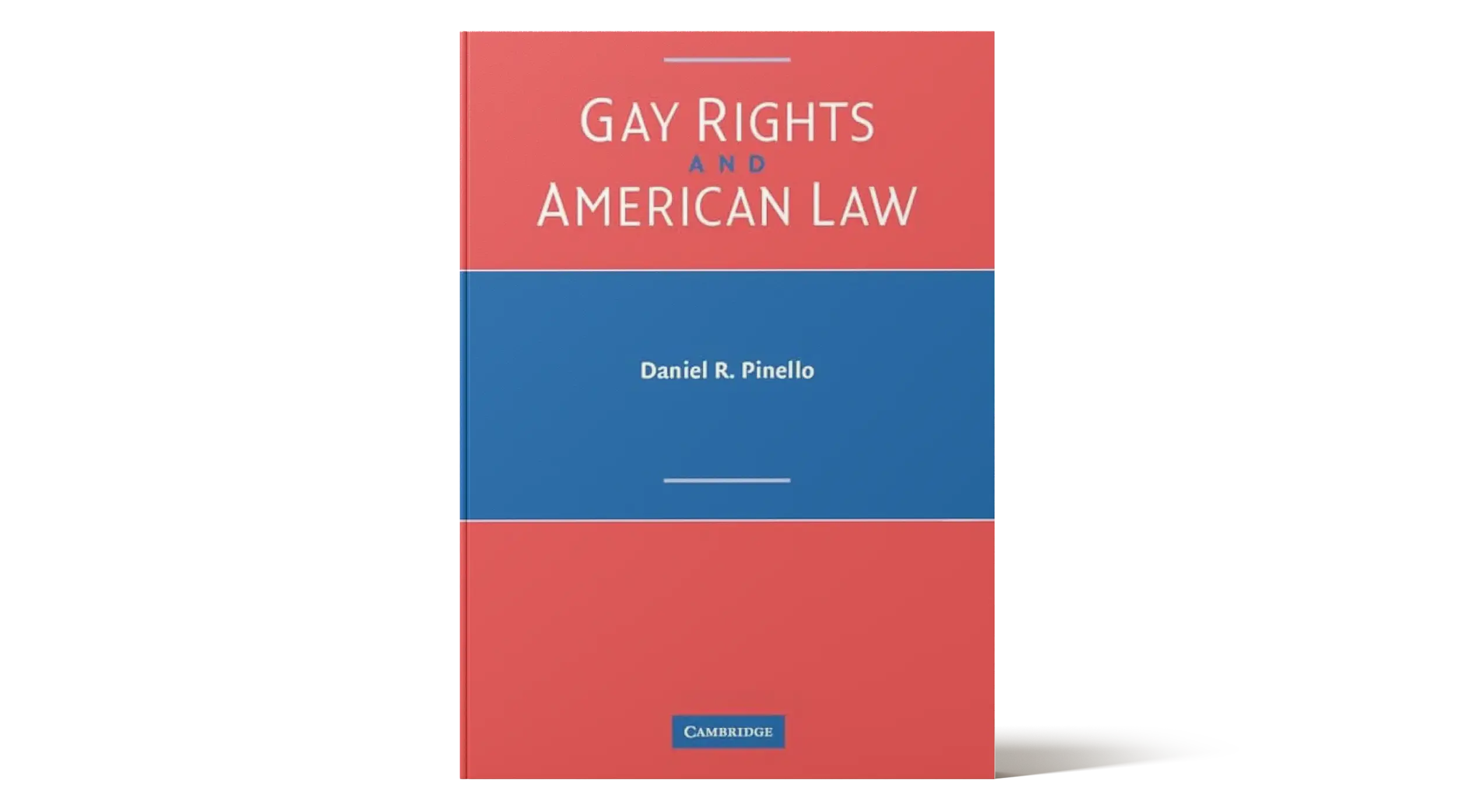State v. Thompson
Supreme Court of Ohio
95 Ohio St. 3d 264; 2002 Ohio 2124; 767 N.E.2d 251
May 15, 2002
COOK, J.
This cause presents the issue of whether Ohio’s importuning statute, R.C. 2907.07(B), violates the Equal Protection Clauses of the United States and Ohio Constitutions. Because we hold that the statutory subsection violates the Fourteenth Amendment to the United States Constitution and Section 2, Article I of the Ohio Constitution, we reverse defendant-appellant Eric Thompson’s conviction for importuning.
I
In July 1999, Thompson was charged with violating R.C. 2907.07(B) after he had solicited a male jogger by offering to perform a sexual act. Prior to trial, Thompson moved to dismiss the charge against him. Thompson argued that because the importuning statute discriminated against those of homosexual orientation, the statute violated the Equal Protection Clauses of the Fourteenth Amendment to the United States Constitution and Section 2, Article I of the Ohio Constitution. The trial court denied the motion to dismiss, and the case proceeded to a bench trial.
The trial court found Thompson guilty. Thompson appealed to the Eleventh District Court of Appeals. That court found Thompson’s argument that the importuning statute violated equal protection compelling, but “with considerable reluctance” followed a prior decision from this court that held that R.C. 2907.07(B) did not violate equal protection. Thompson then appealed to this court.
The cause is now before this court pursuant to our allowance of a discretionary appeal.
II
R.C. 2907.07(B) provides that “no person shall solicit a person of the same sex to engage in sexual activity with the offender, when the offender knows such solicitation is offensive to the other person, or is reckless in that regard.” The 1973 Legislative Service Commission comment to 1972 Am.Sub.H.B. No. 511, which enacted the current version of R.C. 2907.07(B), describes the operation and stated rationale behind the statute:
“The solicitation of homosexual or lesbian activity is also prohibited, when the solicitor knows or has reasonable cause to believe the solicitation is offensive to the person solicited.
“The section represents an exception to the general rule that ‘just asking’ is not a criminal offense. * * * The rationale for prohibiting indiscreet solicitation of deviate conduct is that the solicitation in itself can be highly repugnant to the person solicited, and there is a risk that it may provoke a violent response.”
In State v. Phipps (1979), 58 Ohio St.2d 271, the court relied on this stated purpose in construing R.C. 2907.07(B) “to proscribe only the ‘fighting’ words category of unprotected speech. ‘Fighting’ words are those ‘which by their very utterance inflict injury or tend to incite an immediate breach of the peace.’ ” Thus, the Phipps court reached the following holding:
“Under R.C. 2907.07(B), persons may not be punished for ‘soliciting a person of the same sex to engage in sexual activity with the offender, when the offender knows such solicitation is offensive to the other person, or is reckless in that regard,’ unless the solicitation, by its very utterance, inflicts injury or is likely to provoke the average person to an immediate retaliatory breach of the peace.”
Thompson asks this court to hold that R.C. 2907.07(B) violates the Equal Protection Clauses of the United States and Ohio Constitutions. The state in turn notes its agreement with the court of appeals, which found our prior decisions regarding R.C. 2907.07(B) problematic and asks that we “more fully explain why R.C. 2907.07(B) does not violate the Equal Protection clauses under the United States and Ohio Constitutions.”
The Fourteenth Amendment to the United States Constitution provides that “no State shall * * * deny to any person within its jurisdiction the equal protection of the laws.” Ohio’s Equal Protection Clause in turn provides that “all political power is inherent in the people. Government is instituted for their equal protection and benefit * * *.” We have construed these provisions as being “functionally equivalent,” necessitating the same analysis. Am. Assn. of Univ. Professors, Cent. State Univ. Chapter v. Cent. State Univ. (1999), 87 Ohio St.3d 55, 59.
Without revisiting the Phipps issue of whether homosexual solicitations targeted by R.C. 2907.07(B) constitute fighting words, we find that the statute is facially invalid as a content-based restriction on speech, which by extension violates the equal protection guarantees of both the United States and Ohio Constitutions. In reaching this result, we note that while the parties contend that this court should apply rational-basis review to determine the constitutionality of R.C. 2907.07(B), we must as a matter of law employ a more exacting level of scrutiny.
“In considering whether state legislation violates the Equal Protection Clause of the Fourteenth Amendment * * * [courts] apply different levels of scrutiny to different types of classifications.” Clark v. Jeter (1988), 486 U.S. 456, 461. We use the same analytic approach in determining whether a statutory classification violates Section 2, Article I of the Ohio Constitution. State v. Williams (2000), 88 Ohio St.3d 513, 530. Thus, all statutes are subject to at least rational-basis review, which requires that a statutory classification be rationally related to a legitimate government purpose. When a discriminatory classification based on sex or illegitimacy is at issue, we employ heightened or intermediate scrutiny and require that the classification be substantially related to an important governmental objective. And when classifications affect a fundamental constitutional right, or when they are based on race or national origin, we will conduct a strict-scrutiny inquiry. This latter level of scrutiny demands that a discriminatory classification be narrowly tailored to serve a compelling state interest. United States v. Playboy Ent. Group, Inc. (2000), 529 U.S. 803, 813; Painesville Bldg. Dept. v. Dworken & Bernstein Co., 89 Ohio St.3d 564, 567.
Although the parties contend that R.C. 2907.07(B)’s classification is based on sexual orientation, we find that characterization of R.C. 2907.07(B) erroneous. The plain language of the statute dictates that any person — a heterosexual, homosexual, or bisexual male or female — who solicits a person of the same sex to engage in sexual activity would be guilty of importuning, if the offender knowingly offended the solicitee or was reckless in that regard. Further, our decision in Phipps characterized the statutory classification as based on the nature of the offensive sexual content of the communication. Therefore, the United States Supreme Court’s decision in R.A.V. v. St. Paul (1992), 505 U.S. 377, guides our analysis. Over a dozen years after our decision in Phipps, R.A.V. concerned a city ordinance that prohibited placing “on public or private property a symbol * * * which one knows or has reasonable grounds to know arouses anger, alarm or resentment in others on the basis of race, color, creed, religion or gender.” R.A.V., the defendant, had allegedly burned a cross on a black family’s property, thereby violating the ordinance. Prior to trial, he moved to dismiss the charges in part on the theory that because the ordinance was an impermissible content-based limitation on speech, it was facially invalid under the First Amendment. After initially obtaining a dismissal, R.A.V. lost on appeal in state court and then brought the issue to the United States Supreme Court. The court was bound by the construction of the ordinance given to it by the state supreme court: that “the ordinance reached only those expressions that constitute ‘fighting words.’ ” Accepting this characterization, the court held that even if “all of the expression reached by the ordinance is proscribable under the ‘fighting words’ doctrine, we nonetheless conclude that the ordinance is facially unconstitutional in that it prohibits otherwise permitted speech solely on the basis of the subjects the speech addresses.”
The rationale behind this decision is instructive. The court explained that the general proposition that fighting words “are ‘not within the area of constitutionally protected speech,’ or that the ‘protection of the First Amendment does not extend’ to them” is misleading if not taken in the proper context. “The exclusion of ‘fighting words’ from the scope of the First Amendment simply means that, for purposes of that Amendment, the unprotected features of the words are, despite their verbal character, essentially a ‘nonspeech’ element of communication.” Even such “nonspeech,” the court noted, nonetheless “can be used to convey an idea.” Thus, the court held that “the government may not regulate use based on hostility — or favoritism — towards the underlying message expressed.” This is because “the First Amendment imposes * * * a ‘content discrimination’ limitation upon a State’s prohibition of proscribable speech.”
We find this reasoning directly applicable to the case at bar. Here, R.C. 2907.07(B) seeks to handicap the expression of particular content — offensive same-sex solicitations — while permitting offensive solicitations between opposite sexes. But as the United States Supreme Court has explained, “the reason why fighting words are categorically excluded from the protection of the First Amendment is not that their content communicates any particular idea, but that their content embodies a particularly intolerable (and socially unnecessary) mode of expressing whatever idea the speaker wishes to convey” (emphasis in original). As in R.A.V., the state prohibition here does not single out “an especially offensive mode of expression — it has not, for example, selected for prohibition only those fighting words that communicate ideas in a threatening (as opposed to a merely obnoxious) manner.” Rather, as Phipps held, the distinction drawn in R.C. 2907.07(B) impermissibly proscribes only fighting words of a specific sexual character. This constitutes a content-based limitation.
The stated legislative purpose of the statutory classification at issue is the desire to prevent a violent response to same-sex sexual solicitation. But the means employed here to accomplish this end, in the words of the R.A.V. court, present a “realistic possibility that official suppression of ideas is afoot.” We are convinced that R.C. 2907.07(B) makes such a possibility an actuality. This is not an instance in which the selectivity of the government restriction is simply underinclusive. Mere underinclusiveness does not offend freedom of speech — and therefore equal protection — because it does not discriminate on the basis of content. This is also not a case in which “the basis for the content discrimination consists entirely of the very reason the entire class of speech at issue is proscribable.” Nor is this a case in which a statute’s content discrimination targets only “secondary effects” of the prohibited speech. “‘The emotive impact of speech on its audience is not a “secondary effect.” ‘ “
Here, R.C. 2907.07(B)’s content-based classification implicates a fundamental right. Cf. Williams, 88 Ohio St.3d at 530 (“Recognized fundamental rights include the right to vote, the right of interstate travel, rights guaranteed by the First Amendment to the United States Constitution, the right to procreate, and other rights of a uniquely personal nature”). Therefore, the court of appeals erred in applying less than strict-scrutiny analysis. See Williams v. Rhodes (1968), 393 U.S. 23, 31 (” ‘only a compelling state interest in the regulation of a subject within the State’s constitutional power to regulate can justify limiting First Amendment freedoms’ “).
The state has not narrowly tailored R.C. 2907.07(B) to serve a compelling state interest. Curtailing the risk of violent responses to offensive sexual solicitations — as opposed to prohibiting offensive sexual solicitations of a particular content — could have been achieved by prohibiting all offensive solicitations of sexual activity. The existence of such an adequate content-neutral alternative undercuts any notions that the discriminatory classification of R.C. 2907.07(B) is necessary or that the statute’s ” ‘asserted justification is in fact an accurate description of the purpose and effect of the law.’ ” R.A.V., 505 U.S. at 395. See, also, Madsen v. Women’s Health Ctr., Inc. (1994), 512 U.S. 753, 763 (finding that injunction that prohibited picketing was content neutral, because “none of the restrictions imposed by the court were directed at the contents of petitioner’s message”). Although the Legislative Service Commission comments regarding R.C. 2907.07(B) describe the purpose of the statute as preventing violence related to offensive same-sex solicitations, “the mere assertion of a content-neutral purpose [is not] enough to save a law which, on its face, discriminates based on content. ” Turner Broadcasting Sys., Inc. v. Fed. Communications Comm. (1994), 512 U.S. 622, 642-643.
R.C. 2907.07(B) prohibits speech because of the content expressed in that communication. Such selectivity — targeting specifically the message and not merely the mode used to communicate that message — handicaps the expression of particular ideas. See R.A.V., 505 U.S. at 394. The state not only has failed to demonstrate how this discriminatory classification is narrowly tailored to satisfy a compelling state interest, but, in fact, agrees with the proposition that R.C. 2907.07(B) could not even pass a rational-basis review, a much less stringent standard than strict scrutiny.
III
In his separate concurrence, Justice Pfeifer also argues that rational-basis review applies and that the statute would fail under such scrutiny. He errs in several ways.
The concurrence accuses us of “not addressing the central issue of the case, the only issue that was argued by the parties: whether R.C. 2907.07(B) unconstitutionally distinguishes between people who seek to engage in homosexual activity and people who seek to engage in heterosexual activity.” In framing the issue of this case in such a way, the concurrence fails to appreciate that the broad issue before this court is whether R.C. 2907.07(B) violates the Equal Protection Clauses of the United States and Ohio Constitutions. In making this determination, we are bound neither by a party’s characterization of a statutory classification nor by any party’s suggestion of what level of scrutiny we must employ. Rather, a court must independently determine what level of scrutiny it must apply based on the operation of the statute involved. Cf. Atty. Gen. of New York v. Soto-Lopez (1986), 476 U.S. 898, 906 (explaining that “the logical first question to ask when presented with an equal protection claim * * * is what level of review is appropriate” and that “in order to ascertain the appropriate level of scrutiny, [a court] must, as an initial matter, determine” what right is implicated).
Nonetheless, the concurrence concludes that this court should employ a rational-basis review, because the “obvious intent of R.C. 2907.07(B) is to restrict homosexual activity, not speech.” This reading of the statute ignores what the statute actually proscribes. Nothing in the statutory language criminalizes homosexual activity; rather, the statute criminalizes only same-sex solicitation. As noted, under an accurate reading of the statutory language, even a heterosexual could be guilty of violating R.C. 2907.07(B), if he or she spoke words constituting a same-sex solicitation. It remains legal to engage in same-sex sexual activity, but (according to Phipps) not to solicit such activity in a manner that could lead to violence. While it is conceivable that this prohibition would inhibit the permitted conduct, such a result is secondary to the purpose of the statute on its face. In other words, the concurring Justice would strike a statute based not on what the statute actually proscribes explicitly, but on what it might also inhibit implicitly — ignoring the content-based nature of the statutory prohibition.
Finally, even if R.C. 2907.07(B) did not implicate a fundamental right, requiring strict scrutiny, if this court were to employ rational-basis review, it would require this court to uphold the statute. The concurrence thus not only applies the wrong level of review, but applies it incorrectly.
This court has previously explained:
“Under federal [and state] rational-basis analysis, a classification ‘must be upheld against equal protection challenge if there is any reasonably conceivable state of facts that could provide a rational basis for the classification.’ Fed. Communications Comm. v. Beach Communications, Inc. (1993), 508 U.S. 307, 313. A rational relationship will exist under rational-basis review if ‘the relationship of the classification to its goal is not so attenuated as to render the distinction arbitrary or irrational, see Cleburne v. Cleburne Living Ctr., Inc. 1985, 473 U.S. 432, 446.’ Nordlinger v. Hahn (1992), 505 U.S. 1, 11.
“Importantly, a state has no obligation whatsoever ‘to produce evidence to sustain the rationality of a statutory classification.’ Heller v. Doe (1993), 509 U.S. 312, 320. ‘[A] legislative choice * * * may be based on rational speculation unsupported by evidence or empirical data.’ Beach Communications, supra, 508 U.S. at 315. ‘ “The burden is on the one attacking the legislative arrangement to negative every conceivable basis which might support it.” ‘ Heller, supra. Furthermore, ‘courts are compelled under rational-basis review to accept a legislature’s generalizations even when there is an imperfect fit between means and ends. A classification does not fail rational-basis review because ” ‘* * * in practice it results in some inequality.’ ” Dandridge v. Williams 1970, 397 U.S. 471, 485. * * *’ Heller, 509 U.S. at 321.” Am. Assn. of Univ. Professors, Cent. State Univ. Chapter, 87 Ohio St.3d at 58.
Here, the 1973 Legislative Service Commission comment to 1972 Am.Sub.H.B. No. 511 stated that “the rationale for prohibiting indiscreet solicitation of deviate conduct is that the solicitation in itself can be highly repugnant to the person solicited, and there is a risk that it may provoke a violent response.” Thus, by confining its prohibition to the solicitation of what the General Assembly described as “deviate conduct,” the legislature found that same-sex solicitation is more likely to induce violence than solicitations between members of opposite genders. Legislatures are permitted to so generalize in their collective decision-making. Because courts may not indulge any personal intuition to the contrary, almost any classification survives “mere rationality” review. The classification must be upheld so long as it is conceivable that the classification bears a rational relationship to a legitimate governmental objective.
Therefore, in the words of Fed. Communications Comm. v. Beach Communications, Inc., 508 U.S. at 313, there is a “reasonably conceivable state of facts that could provide a rational basis for this classification”: preventing violence by prohibiting that which is likely to induce it. While the generalization underlying the classification may not be one that any member of this court would endorse, our role is to accept the legislature’s proposition unless Thompson negates “every conceivable basis which might support it.” Thompson has failed to do this. Thus, we could not say that the relationship of the classification to its goal is “so attenuated as to render the distinction arbitrary or irrational.” Cleburne, 473 U.S. at 446. Only by ignoring the stated rationale behind R.C. 2907.07(B) is the concurrence able to make the conclusory determination that “the classification drawn in R.C. 2907.07(B) is not rationally related to a legitimate government purpose.”
Nevertheless, R.C. 2907.07(B) implicates a fundamental right, necessitating the strict-scrutiny review we employ.
IV
It is well settled that “the First and Fourteenth Amendments forbid discrimination in the regulation of expression on the basis of the content of that expression.” Carey v. Brown (1980), 447 U.S. 455, 463. Accordingly, we find that R.C. 2907.07(B) is facially invalid under the Fourteenth Amendment to the United States Constitution and Section 2, Article I of the Ohio Constitution. We therefore reverse Thompson’s conviction.
Judgment reversed.
F.E. SWEENEY, J., concurs.
MOYER, C.J., RESNICK and LUNDBERG STRATTON, JJ., concur in syllabus and judgment.
DOUGLAS, J., concurs in judgment and in the concurrence of Justice Pfeifer.
PFEIFER, J., concurs separately.
PFEIFER, J., concurring.
The lead opinion rightly determines that R.C. 2907.07(B) violates the Fourteenth Amendment to the United States Constitution and Section 2, Article I of the Ohio Constitution. Therefore, I concur in the judgment and the syllabus. I write separately because the lead opinion has not addressed the central issue of the case, the only issue that was argued by the parties: whether R.C. 2907.07(B) unconstitutionally distinguishes between people who seek to engage in homosexual activity and people who seek to engage in heterosexual activity.
Instead, the lead opinion finds R.C. 2907.07(B) to be a “content-based restriction on speech, which by extension violates the equal protection guarantees of both the United States and Ohio Constitutions.” The obvious intent of R.C. 2907.07(B) is to restrict homosexual activity, not speech, as the lead opinion would have us believe. In the same way, the obvious intent of R.C. 2907.24, which prohibits the solicitation of another person to engage in sexual activity for hire, is to restrict prostitution, not speech.
I would directly address the issue that the parties raised. I would find that the classification drawn in R.C. 2907.07(B) does not survive rational-basis scrutiny. Clark v. Jeter (1988), 486 U.S. 456, 461. There is no rational reason for the state to treat people who seek to engage in homosexual activity as criminals when it does not treat people who seek to engage in heterosexual activity as criminals. Even the state, in its brief to this court, expressed reservations about such a distinction. Because the classification drawn in R.C. 2907.07(B) is not rationally related to a legitimate government purpose, I conclude that it violates the Equal Protection Clause of the Fourteenth Amendment to the United States Constitution. For the same reason, I conclude that R.C. 2907.07(B) violates Section 2, Article I of the Ohio Constitution. Accordingly, I would also reverse State v. Phipps (1979), 58 Ohio St.2d 271.
DOUGLAS, J., concurs in judgment and in the foregoing opinion.



